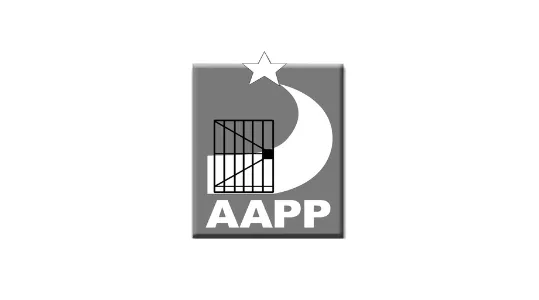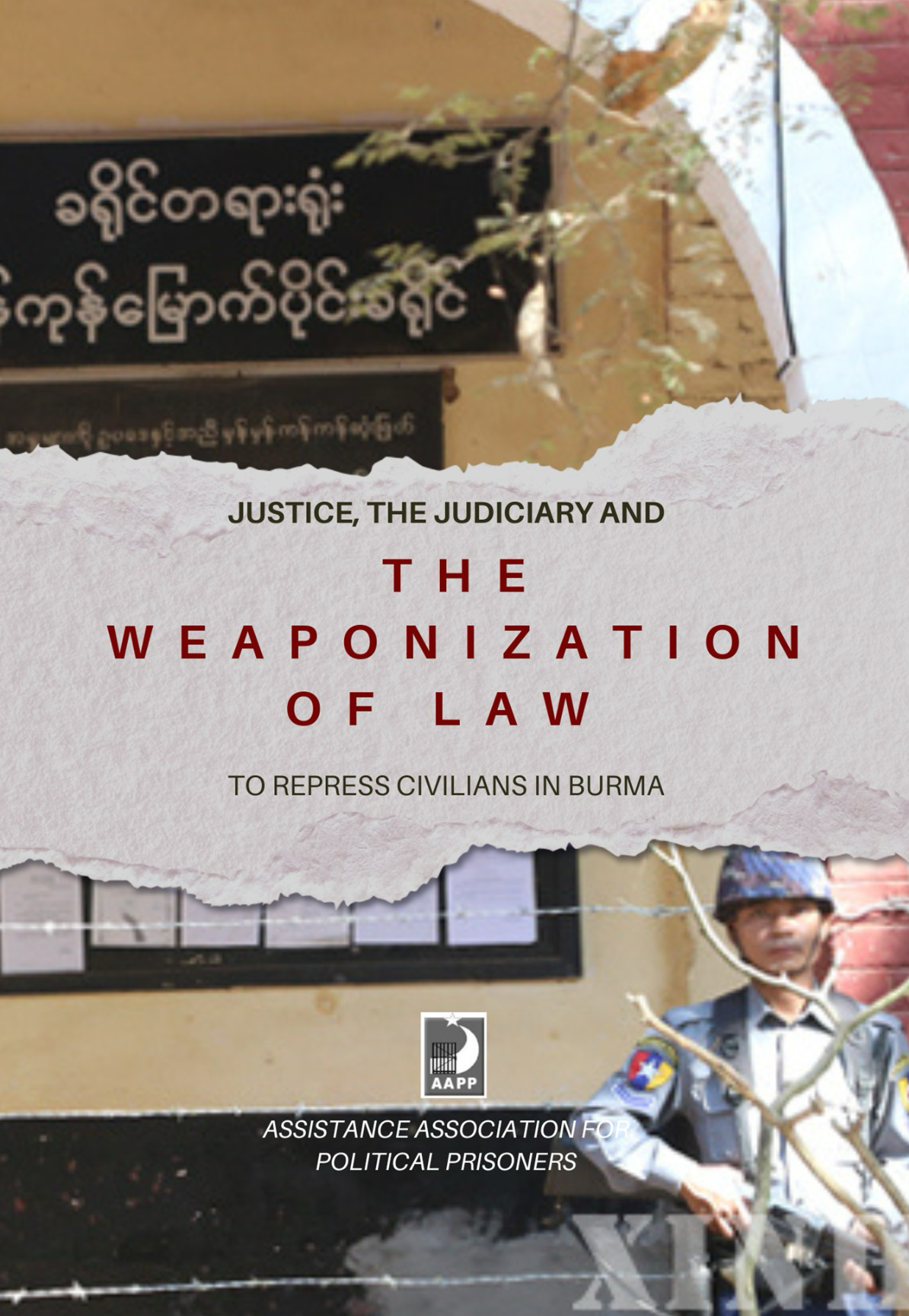Justice, the Judiciary and the Weaponization of Law to Repress Civilians in Burma
23 March 2025


Following independence in 1948, Burma (Myanmar) saw a glimmer of hope as a democratic system began to emerge. Yet, from 1962 and the almost 60 years since, the people of Burma have lived under varying iterations of brutal military rule. Whilst the opposition NLD party, led by Daw Aung San Suu Kyi, won a landslide general election in 2015, once in power they then faced overpowering military influence, justified by the 2008 Constitution, which it had itself drafted in its own image and interest. Democracy was drowned out by the will of the military junta, which justified the coup with allegations of voter fraud in the 2020 general election. While the allegations were discredited by national and international monitors, the military proceeded to seize state power, arresting popularly elected NLD representatives and cabinet members and installing a State Administrative Council (SAC) to control the country. The junta declared a state of emergency based on the 2008 Constitution, despite the fact that the military’s own activities and statements justifying the state of emergency arguably nullified the very constitution it had produced. Following the coup, the Commander-in-Chief claimed three kinds of state power: legislative, executive, and judicial. Ethnic groups and pro-democracy activists responded with protests across the country, and declared that the 2008 Constitution was, and has always been, null and void.
This report aims to highlight the ways in which the military junta in Burma weaponizes the rule of law to enable and legitimize its repression, violence and overturning of a democratic election. It does this through reliance on the 2008 Constitution, the enactment of legislation that is not human rights compliant and the annulment of legislation enacted by the NLD.
As the military increasingly loses its grip on power and the Spring Revolution gains increasing momentum, this is a critical juncture for the country, its people, and the NUG. It presents an opportunity not only to take stock of the concerning legal and legislative manoeuvres by the junta since 2021 to create a favourable legislative environment in which to operate but also to imagine and plan for the re-shaping of the country and its systems, underpinned by the mutually reinforcing principles of the rule of law, human rights and democracy.
Many liberated areas have been controlled by revolutionary groups as a result of the successes of the armed revolution. In May 2024 the NUG declared that over 60% of areas were “liberated”,2 in the sense of being under the control of pro-democracy revolutionary groups. In such areas, groups are beginning to implement their own administrative procedures to ensure governance and rule of law in their respective areas of control. Most use existing laws and procedures to implement security and the rule of law, whereas some groups legally enforce their own laws in their respective areas of control. For instance, the Myanmar National Democratic Alliance Army (MNDAA) and the United Wa State Army (UWSA) use their own laws and procedures in their regions. Whilst this may indicate an encouraging start to the process of establishing governance systems and the rule of law mechanisms in anticipation of the junta’s defeat, it is imperative that any new laws, accountability mechanisms, and even the language and provisions of new legislation, are human rights compliant and grounded in democratic principles. Moreover, law enforcement authorities should follow good governance practices.
Under the current system, Burma has no valid constitution upon which it can base practices of arrest and detainment, and there is therefore no clear procedure at present for the separation of powers. Consequently, the implementation of new laws and procedures within the justice frameworks of opposition governments in exile, whilst promoting human rights and democracy, undoubtedly presents challenges. Most of the laws currently in place were enacted by successive military rulers with the purpose of repressing citizens’ rights and enabling the military to hold their power.
Announcements
21 May 2025
Open letter: Malaysia must lead ASEAN with principle, not hypocrisy, to address the Myanmar crisis

Progressive Voice is a participatory rights-based policy research and advocacy organization rooted in civil society, that maintains strong networks and relationships with grassroots organizations and community-based organizations throughout Myanmar. It acts as a bridge to the international community and international policymakers by amplifying voices from the ground, and advocating for a rights-based policy narrative.